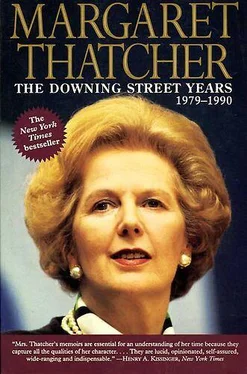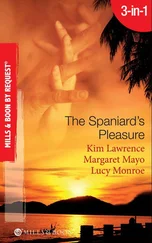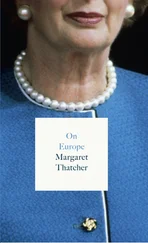By about 11 p.m. the list of Cabinet was complete and had been approved by the Queen. I went upstairs to thank the No. 10 telephonists who had had a busy time arranging all the appointments for the following day. Then I was driven home.
On Saturday I saw the future Cabinet one by one. It all went smoothly enough. Those who were not already Privy Councillors were sworn in at Buckingham Palace. [5] The Privy Council is one of the oldest of Britain’s political institutions, with the most important of the Crown’s advisers among its members, including by convention all Cabinet ministers. Its meetings — usually of a few ministers in the presence of the Queen — are now purely formal, but the oath taken by new members reinforces the obligation of secrecy in conducting government business, and the issue of ‘Orders in Council’ is still an important procedure for enacting the legislation not requiring the approval of Parliament.
By Saturday afternoon the Cabinet was appointed and the names announced to the press. That gave every new minister the weekend to draft instructions to his department to put into effect the manifesto policies. In fact there was slightly more time than usual, since Monday was a Bank Holiday.
On Saturday night we completed the list of junior ministers, and I saw or telephoned them on the Sunday. Many of these would later enter Cabinet, including Cecil Parkinson, Norman Tebbit, Nick Ridley and John Wakeham. The best junior ministers were always in great demand by their seniors: a really good ministerial team is of enormous importance in keeping effective political control over the work of a government department. There were some sixty posts to be filled. But the whole Government had been appointed and announced within 48 hours of my entering Downing Street.
My last and best appointment was of Ian Gow as my Parliamentary Private Secretary (or PPS). Ian’s combination of loyalty, shrewdness and an irrepressible sense of fun was to see us all through many difficult moments. He was an instinctive parliamentarian who loved every aspect of the House of Commons. In private conversation he had the ability to draw everyone into the political circle and make them feel theirs was the vital contribution. In public his speeches were marked by a deadpan humour which could reduce both sides of the House to tears of laughter. We remained close friends after Ian’s principled resignation over the Anglo-Irish agreement which he opposed from a standpoint of undiluted Unionism. His murder by IRA terrorists in 1990 was an irreplaceable loss.
Monday was, as I have noted, a Bank Holiday. I came into No. 10 and took the opportunity to complete a number of nonministerial appointments. John Hoskyns arrived in the afternoon to become head of my Policy Unit. [6] The Policy Unit was first set up by Harold Wilson in 1974 and continued by James Callaghan. The value of the Unit, whose membership I subsequently increased, lies in its flexibility and involvement in day-to-day policy matters, on the basis of close collaboration with the Prime Minister.
John’s background was in business and computers; but over and above that experience, he had strong powers of analysis and had helped formulate our economic strategy in Opposition. He propagated the theory that a ‘culture of decline’ was the ultimate cause of many of Britain’s economic problems. In government he repeatedly compelled ministers to relate each problem to our overall strategy of reversing that decline. He kept our eye on the ball.
That same day I saw Kenneth Berrill, the head of the Central Policy Review Staff (CPRS) or ‘Think-Tank’. The CPRS had originally been set up by Ted Heath as a source of long-term policy advice for the Government, at a time when there were fewer private think-tanks, fewer special advisers in government and a widespread belief that the great questions of the day could be resolved by specialized technical analysis. But a government with a firm philosophical direction was inevitably a less comfortable environment for a body with a technocratic outlook. And the Think-Tank’s detached speculations, when leaked to the press and attributed to ministers, had the capacity to embarrass. The world had changed, and the CPRS could not change with it. For these and other reasons, I believe that my later decision to abolish the CPRS was right and probably inevitable. And I have to say that I never missed it.
I also asked Sir Derek Rayner to set up an Efficiency Unit that would tackle the waste and ineffectiveness of government. Derek was another successful businessman, from what everyone used to describe as my favourite company, Marks & Spencer. The two of us used to say that in politics you judge the value of a service by the amount you put in, but in business you judge it by the amount you get out. We were both convinced of the need to bring some of the attitudes of business into government. We neither of us conceived just how difficult this would prove.
On the same day I saw Sir Richard O’Brien on a matter which illustrates the extraordinary range of topics which crossed my desk in these first days. Sir Richard was not only chairman of the Manpower Services Commission, the QUANGO which supervised the nation’s training schemes, [7] Quasi-autonomous nongovernmental organization.
but also chairman of the committee to advise the prime minister on the appointment of a new Archbishop of Canterbury. (Donald Coggan had announced his intention to retire; his successor had to be found by the end of the year.) He informed me about the committee’s work and gave me an idea of when it would be ready to make its recommendations. In view of my later relations with the hierarchy, I could wish that Sir Richard had combined his two jobs and established a decent training scheme for bishops.
It was the nation’s financial and economic affairs, however, which required immediate attention. Sir John Hunt, the Cabinet Secretary, gave a reassuring impression of quiet efficiency which turned out to be entirely accurate. He had prepared a short brief on the most urgent questions, such as public sector pay and the size of the Public Sector Borrowing Requirement (PSBR), and compiled a list of imminent meetings with other heads of government. Each of these required early decisions to be made. My last appointment that Monday afternoon was with Geoffrey Howe to discuss his forthcoming budget. That night — most unusually — I managed to get back to Flood Street for dinner with the family. But there was no let-up in activity. I had a stack of papers to read on every conceivable subject.
Or so it seemed. The ceaseless flow of red despatch boxes had begun — anything up to three each evening and four at weekends. But I set to with a will. There is never another opportunity like that given to a new government with a fresh electoral mandate to place its stamp firmly on public affairs, and I was determined to take advantage of it.
On Tuesday at 2.30 p.m. we held our first Cabinet meeting. It was ‘informal’: no agenda had been prepared by the Cabinet Secretariat and no minutes were taken. (Its conclusions were later recorded in the first ‘formal’ Cabinet which met on the customary Thursday morning.) Ministers reported on their departments and the preparations they had made for forthcoming legislation. We gave immediate effect to the pledges in our manifesto to see that both the police and the armed forces were properly paid. As a result of the crisis of morale in the police service, the fall in recruitment and talk of a possible police strike, the Labour Government had set up a committee on police pay under Lord Justice Edmund Davies. The committee had devised a formula to keep police pay in line with other earnings. We decided that the recommendations for pay increases due for implementation on 1 November should be brought forward. This was duly announced the following day, Wednesday. We similarly decided that the full military salary recommended by the latest Report of the Armed Forces Pay Review Body should be paid in full, as from 1 April.
Читать дальше












